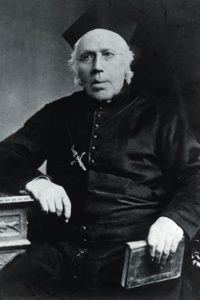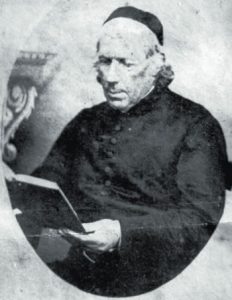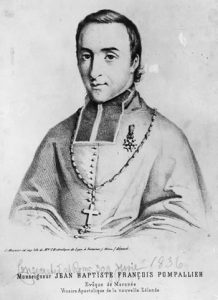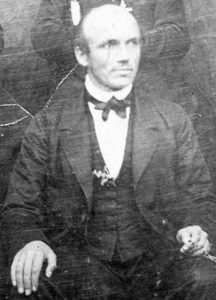Liturgy and the early Catholic missionaries to New Zealand (2)
This article was first published in the Auckland Diocese Liturgy magazine. It is used with permission.
Karakia, prayer and chants, were already part of Māori culture. The innovation brought by the Catholic Missionaries was a new set of prayers, not the idea of prayer. Fr Forest tells Fr Colin about a missionary trip in the very Catholic region of Opotiki:
We continued on our way reciting the prayers in Māori, and chanting the litanies of the Blessed Virgin. We formed two choirs, Fr Reignier and one of the natives chanting the invocation e hata Maria etc. [Hail Mary], the other Māori and I chanting the response inoi mo matou, ‘pray for us.’ We experienced a joy impossible to express in being able to mingle these consoling chants to the Queen of heaven with the sound of the foaming breakers dying at our feet. Towards sunset we came to a Māori pā containing about thirty people, twenty-four of them Catholic, and following the prayers of epikopo. [Epikopo is a Māori neologism based on the Latin for ‘bishop,’ episcopus.] On our arrival we witnessed a tanghi, the welcome Māori give their relatives if they have not seen them for a long time. In fact, we were going to stay with the sister of one of our guides. When this woman saw her brother she started this ceremony. It consists of a mutual rubbing of noses, then she began her tanghi, a tearful chant in which she described the joy, the happiness she had shared with him in times past. Once the tanghi was over, they said prayers.
Fr Forest clearly considers the tanghi to be a ceremony which is linked to, and perhaps a part of, prayer. The ‘prayers of epikopo’ are the prayers introduced by Bishop Pompallier.
Fr Servant describes with admiration a request to be catechised:
One day, while convincing me that I should see him frequently to give him instruction, a chief told me: When I pray, I don’t know how to say anything to God except: ‘O my God! I can tell you nothing except that I love you, in the name of the Father and of the Son and of the Holy Spirit.’
In the same letter he made it clear that the Māori understood the connection between right worship and right action
A European asked one of our converts to persuade a sister of his to consent to a sinful proposal. The convert went and fetched his little prayer book and, showing it to him, shouted: ‘I believe in God and if you were to give me all the goods in the world, I would not agree to offend him.’
The prayers of the Marae, whether Catholic or Protestant, were public events performed at regular times signalled by the ringing of a bell, or the banging of a spade!
Our Catholics number about 200. They are good enough but not so enthusiastic about coming to church on workdays. They are all whakamā (ashamed) that the Protestants have a huge bell of 250 to 300 pounds while they have one of only 8 to 10 pounds which can scarcely be heard from the edge of the pā.
That Catholic Māori had a little prayer book was the result of hard work by Bishop Pompallier - the author - and the brothers and laymen at the new Catholic printery in Kororareka (Russell). Br Emery is pleased to describe the outcome:
Now our place is always full of natives, especially since we have built two big houses for them behind our big house. Now it is a very fine sight. Every evening these good Māori can be heard singing their hymns, reciting their catechism, their rosaries or other prayers. They learn very quickly. They know their catechism from one end to the other. I am a printer, with dear Brother Luc, and Mr Yvert is our instructor. We have already printed two books. The Māori are now very proud of theirs. They make fun of the Protestants who always said that they would not have any.
- Fr Jean Forest to Fr Jean-Claude Colin, Bay of Islands, 26 March 1843, translated by Fr Brian Quin sm
- Fr Catherin Servant to Fr Marcellin Champagnat, Hokianga, 29 May (?) 1841, translated by Br Edward Clisby fms.
- ibid
- Br Claude-Marie (Jean-Claude) Bertrand to the Brothers of the Hermitage, Opotiki, 6 January 1846, translated by Br Edward Clisby fms
To be continued






 Entries(RSS)
Entries(RSS)